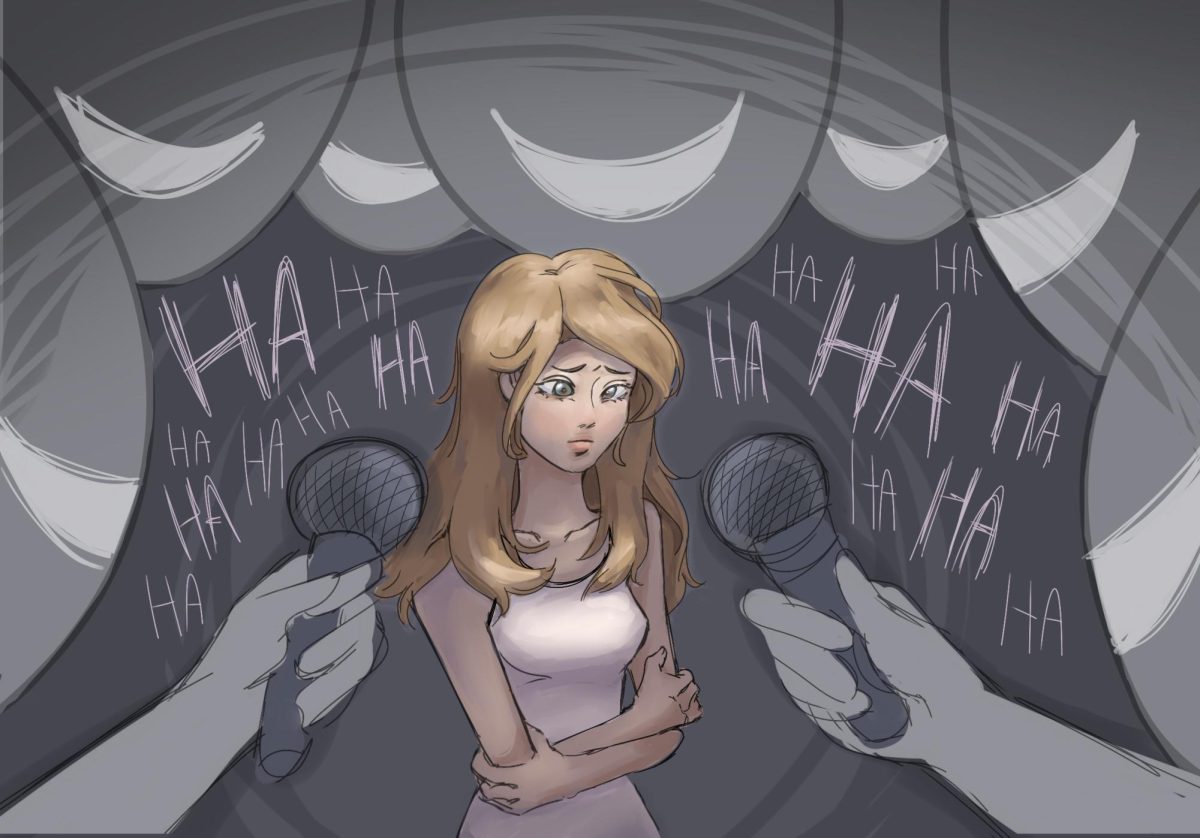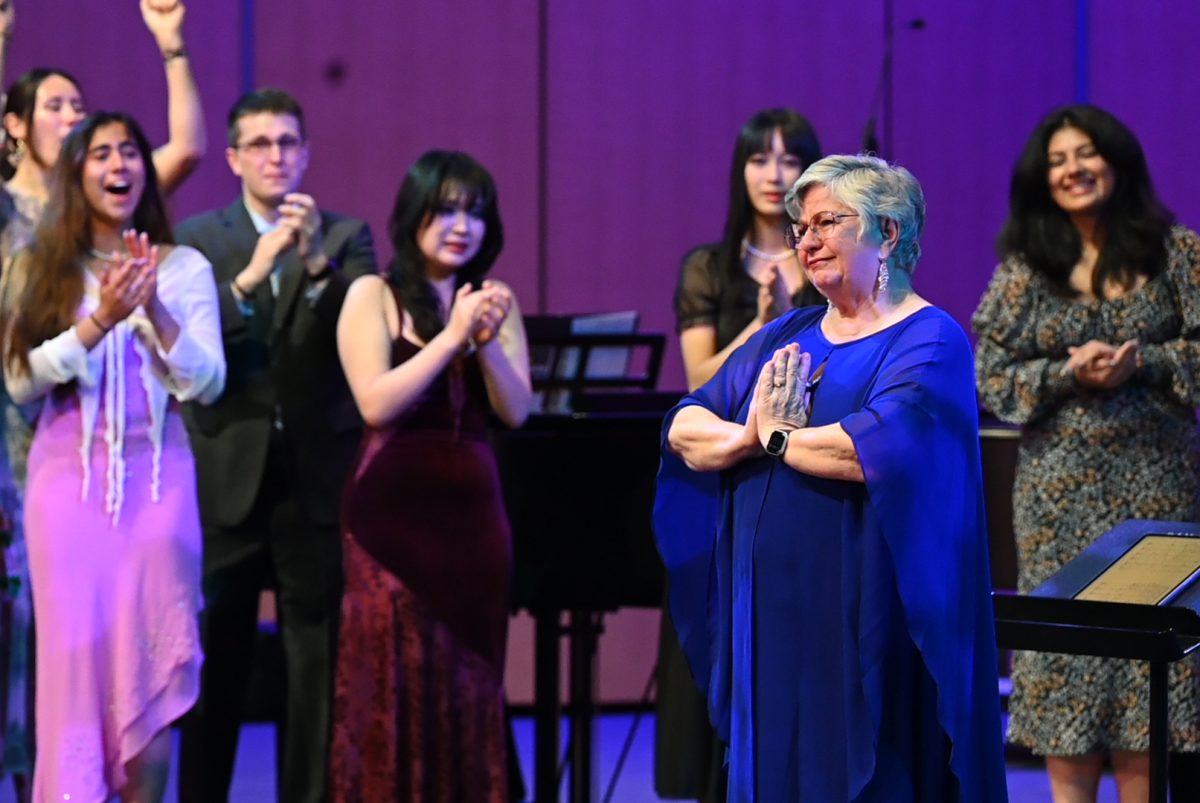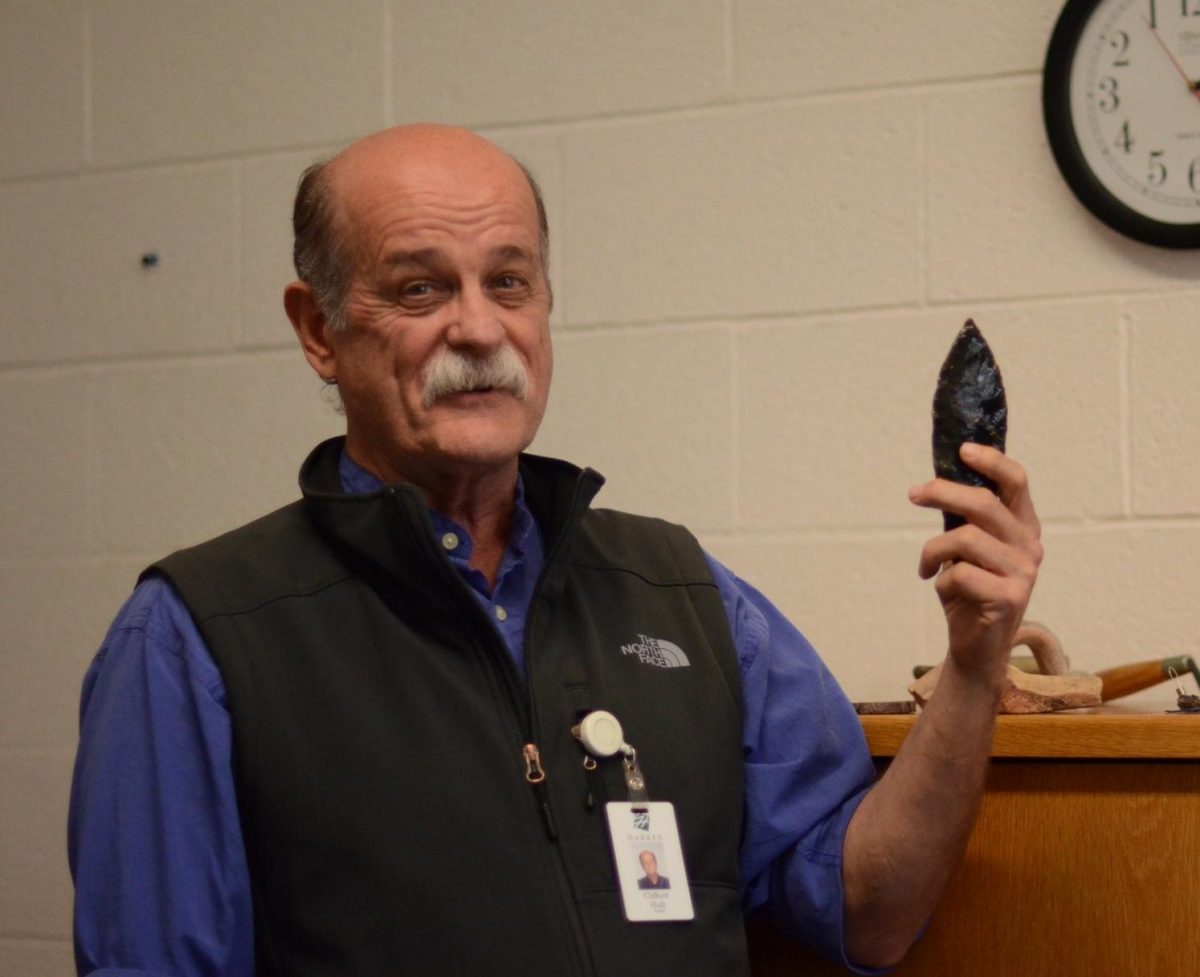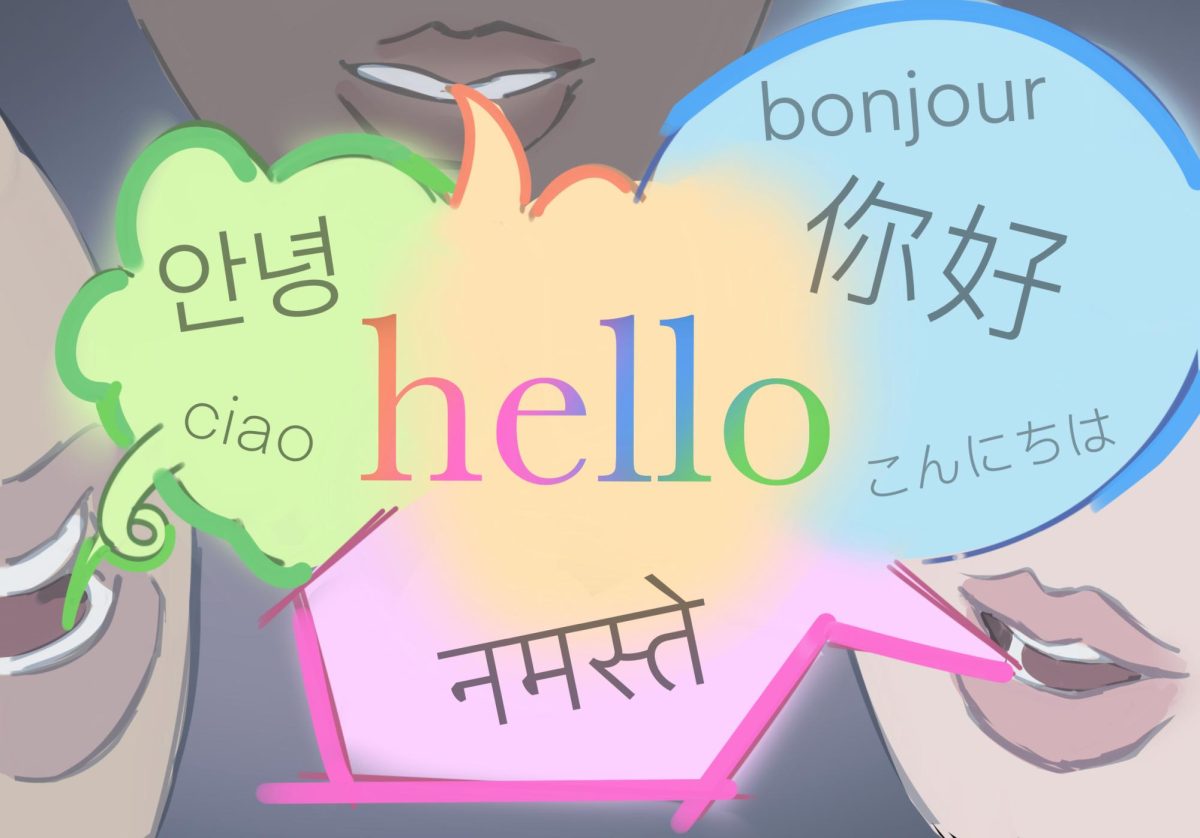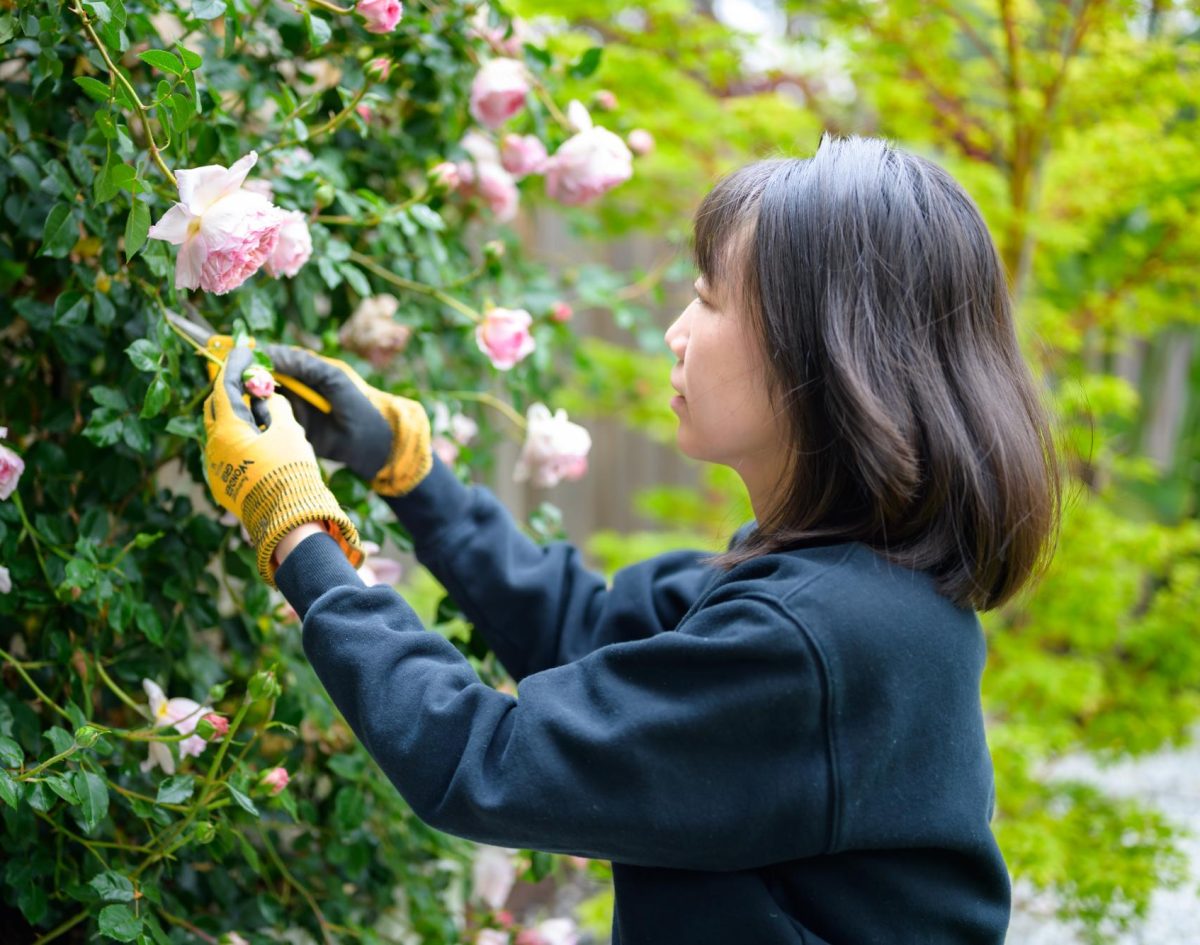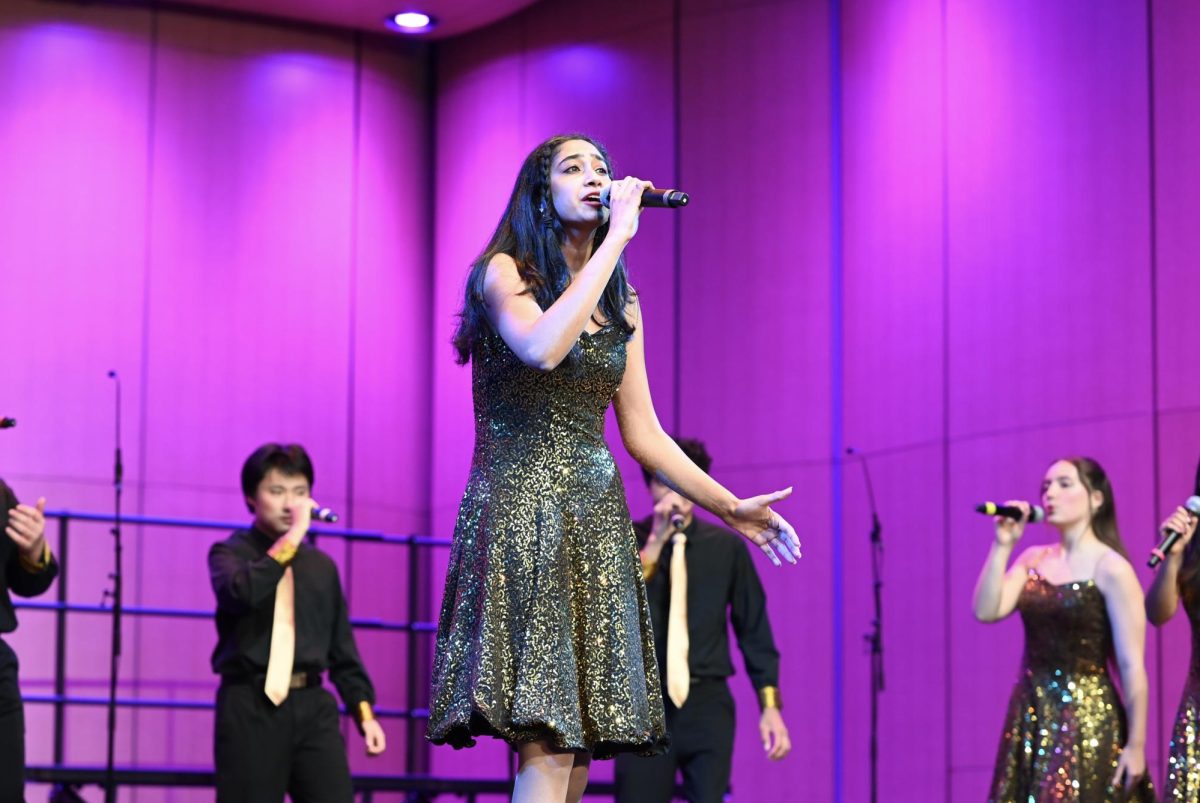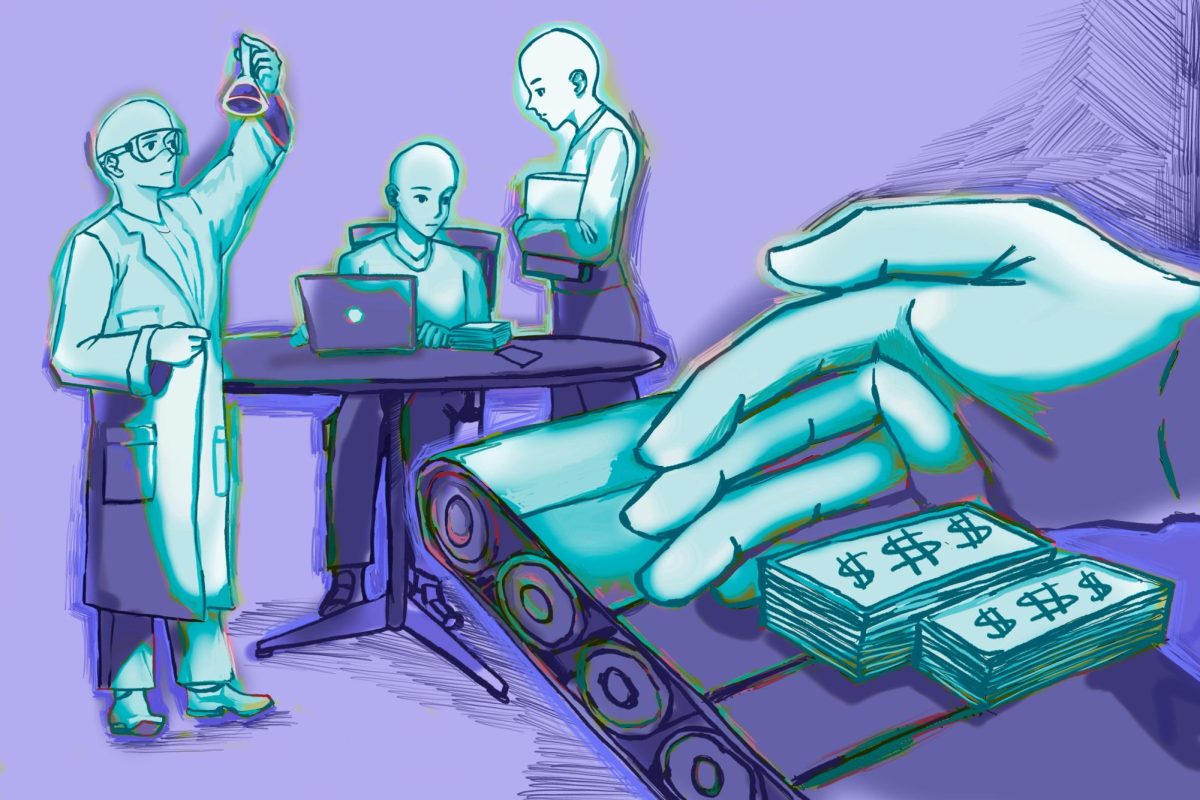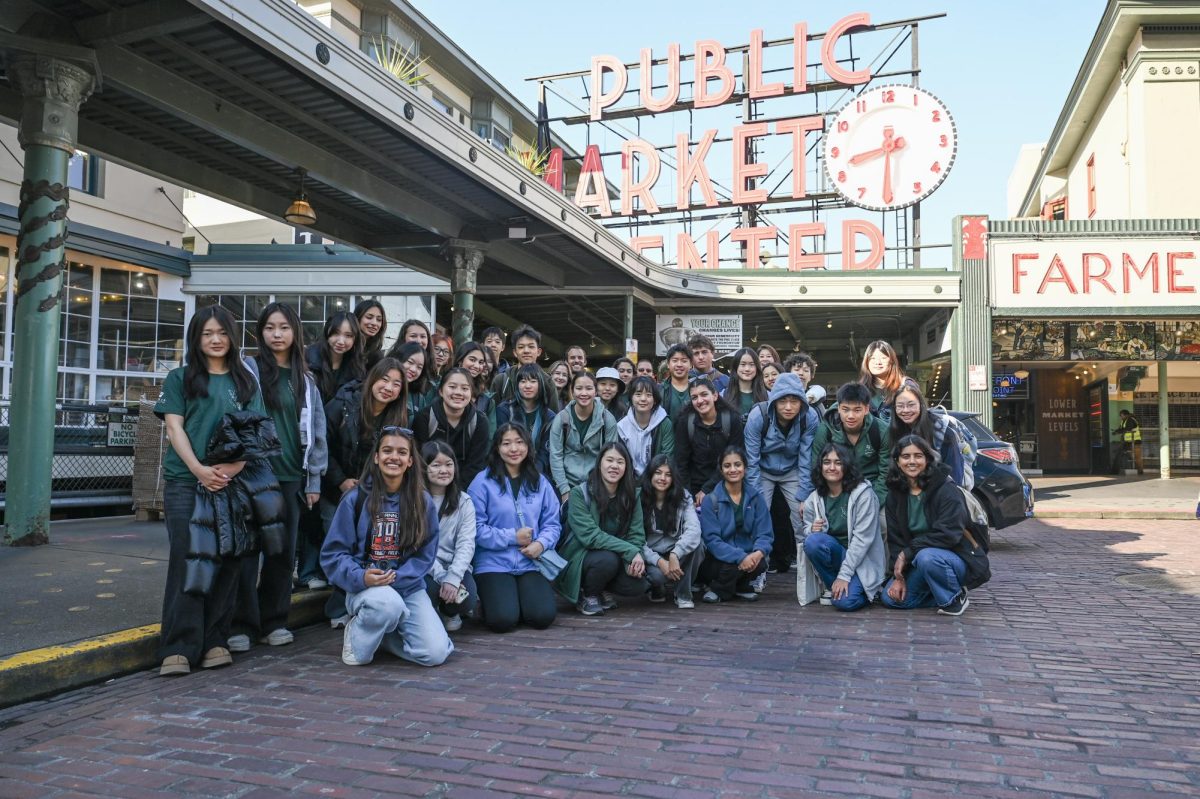“It’s just a joke.” “You’re too soft.” “Stop being so sensitive.” These commonly heard phrases dismiss the effects of hurtful humor and imply that it’s normal to “laugh off” problematic remarks. Whether it be talk shows or stand-up comedy, comedians often push the boundaries of acceptable humor. When jokes veer into topics of gender stereotypes, sexuality or misogyny, it’s easy to question: how far is “too far” in the realm of comedy?
Throughout comedy’s history, humor has been used as a way to reinforce power dynamics, with women usually being the target of sexist jokes. Despite strides in gender equality in the entertainment industry, the belief that “men are funnier than women” persists, solidifying comedy as a male-dominated field where women struggle to gain visibility. In stand-up comedy, where men make up 89% of comedians, stereotypical jokes about women are frequently heard.
The trend of sexual humor continues into Generation Z, with emerging comedians like Matt Rife crafting jokes with harmful tropes like domestic abuse to cater to male audiences. In his Netflix comedy special Natural Selection, Rife joked about a restaurant hostess with a black eye, implying that better cooking skills could have prevented her injury. He justified his statement as a test of the audience’s sense of humor and later remarked, “I figure if we start the show with domestic violence, the rest of the show should be smooth sailing.”
Comedian Ritu Belani (12) emphasizes that while comedians strive to entertain audiences, they should still be aware of the impact of their jokes.
“There are clever ways, thoughtful ways that you can make a political statement if you want to talk about gender,” Ritu said. “I think it’s inappropriate for these jokes to cross physical boundaries. Yes, they’re comedians. And yes, they’re trying to make people laugh, but I think there is a certain level of professionalism that is to be expected.”
Many easily dismiss these types of jokes, but behind the laughter lies a deeper issue of normalization of gender stereotypes. A 2007 study proved that sexist humor allows men to feel more comfortable expressing misogynistic attitudes and leads to tolerance of discrimination against women.
Comedy plays a significant role in media, with event ticket revenues reaching 3.1 billion in 2023 within the U.S. In addition to live shows, streaming platforms make up a significant portion of the industry. Over 200 comedians have their own specials on Netflix. With this vast viewing community, comedians who leverage their platform to play off inappropriate jokes as harmless contribute to the growing acceptance of misogyny.
“Comedy is part of culture and media that we consume as a society,” Ritu said. “Just like how we have conversations about certain TV shows and how they portray populations, comedy affects what we normalize as a society on a subconscious level.”
Many celebrated comics in our society include sexist jokes about women in their routines. Norm Macdonald was regarded as a “comedy legend” in the 1990s and 2000s. He frequently objectified women in his jokes, suggesting that they trim their waistlines and enhance their chests to reflect a Barbie-like physique. He also made jabs at singer Madonna’s alleged promiscuity.
FEM Club vice president Sofia Shah (10) said many comedians launch their careers by making jokes similar to those made by Macdonald’s.
“A lot of comedians get their start by poking fun at people, whether it be race, gender or sexual orientation,” Sofia said. “In some instances, they’re funny, but it’s up to people to self-regulate. There should be common sense of what’s a nice thing to say, and what’s a mean thing to say.”
Television shows featuring sexist humor send a widespread message that it can be “funny” to demean women. Famous talk show hosts like David Letterman and Ellen DeGeneres would interrogate female guests on their “tiny” outfits from film sets or their dating history.
Comedy fan and upper school history department chair Mark Janda believes that this type of comedy heightens the misogynistic idea that appearance and relationships, rather than accomplishments, determine a woman’s value.
“I hope the days of David Letterman’s kind of humor have passed,” Janda said. “We have a history of women being ‘objects for consumption’ by the rest of society, and that’s really problematic.”
Despite the prevalence of sexist humor, some female comedians challenge societal norms and confront gender imbalance in comedy. Comics like Amy Schumer and Ali Wong have gained prominence by tackling taboo subjects like sex and gender roles and sharing their unique perspectives in jokes, paving the way for future generations of female comedians. In light of their successes, Janda highlights the importance of promoting marginalized voices and groups.
“The biggest, most important thing we [can] do to address these jokes is to continue to talk about them, and in particular, to amplify the voices of those who have been marginalized and been the target of the jokes,” Janda said. “People who have access to publishing and broadcasting and people in positions of power in the media have to be sure to amplify those voices that we haven’t heard enough of. When we hear more of those voices, we can all become more empathetic.”


















![“[Building nerf blasters] became this outlet of creativity for me that hasn't been matched by anything else. The process [of] making a build complete to your desire is such a painstakingly difficult process, but I've had to learn from [the skills needed from] soldering to proper painting. There's so many different options for everything, if you think about it, it exists. The best part is [that] if it doesn't exist, you can build it yourself," Ishaan Parate said.](https://harkeraquila.com/wp-content/uploads/2022/08/DSC_8149-900x604.jpg)




![“When I came into high school, I was ready to be a follower. But DECA was a game changer for me. It helped me overcome my fear of public speaking, and it's played such a major role in who I've become today. To be able to successfully lead a chapter of 150 students, an officer team and be one of the upperclassmen I once really admired is something I'm [really] proud of,” Anvitha Tummala ('21) said.](https://harkeraquila.com/wp-content/uploads/2021/07/Screen-Shot-2021-07-25-at-9.50.05-AM-900x594.png)







![“I think getting up in the morning and having a sense of purpose [is exciting]. I think without a certain amount of drive, life is kind of obsolete and mundane, and I think having that every single day is what makes each day unique and kind of makes life exciting,” Neymika Jain (12) said.](https://harkeraquila.com/wp-content/uploads/2017/06/Screen-Shot-2017-06-03-at-4.54.16-PM.png)








![“My slogan is ‘slow feet, don’t eat, and I’m hungry.’ You need to run fast to get where you are–you aren't going to get those championships if you aren't fast,” Angel Cervantes (12) said. “I want to do well in school on my tests and in track and win championships for my team. I live by that, [and] I can do that anywhere: in the classroom or on the field.”](https://harkeraquila.com/wp-content/uploads/2018/06/DSC5146-900x601.jpg)
![“[Volleyball has] taught me how to fall correctly, and another thing it taught is that you don’t have to be the best at something to be good at it. If you just hit the ball in a smart way, then it still scores points and you’re good at it. You could be a background player and still make a much bigger impact on the team than you would think,” Anya Gert (’20) said.](https://harkeraquila.com/wp-content/uploads/2020/06/AnnaGert_JinTuan_HoHPhotoEdited-600x900.jpeg)

![“I'm not nearly there yet, but [my confidence has] definitely been getting better since I was pretty shy and timid coming into Harker my freshman year. I know that there's a lot of people that are really confident in what they do, and I really admire them. Everyone's so driven and that has really pushed me to kind of try to find my own place in high school and be more confident,” Alyssa Huang (’20) said.](https://harkeraquila.com/wp-content/uploads/2020/06/AlyssaHuang_EmilyChen_HoHPhoto-900x749.jpeg)



